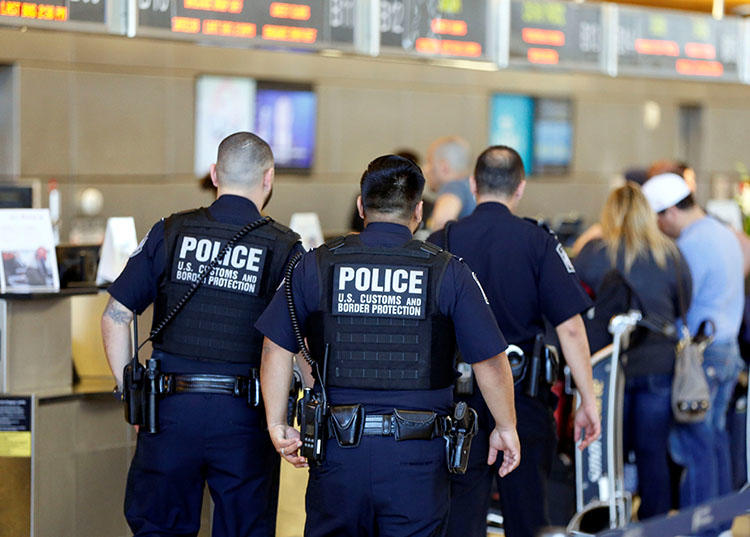CPJ’s slog to improve DHS and CBP policy toward journalists
One of the key principles of journalism is protecting the confidentiality of sources. So when CPJ started hearing from journalists who said they were being stopped and questioned about their journalism when they entered the United States, and that their electronic devices were sometimes searched or confiscated without a warrant or probable cause, we reported on the incidents and sought to meet with the policymakers who have the authority to address the problem.
And so sparked a trying process that has spanned two administrations. Our concerns and requests for meetings on behalf of the ACOS Alliance—a group of more than 90 press freedom and journalist safety organizations—were brushed off and our recommendations ignored, even as more journalists came forward to speak about the impact these invasive searches have on their ability to work.
First, we met with the Assistant Secretary for Public Affairs Todd Breasseale and representatives from Department of Homeland Security (DHS) and Customs and Border Protection (CBP) in the final days of the Obama administration. About six months later, with officials from DHS and the border agency, CPJ, along with fellow ACOS board member Reporters Without Borders (RSF), raised concerns about the chilling effect that these searches were having on journalists. We provided them with a draft set of guidelines developed by RSF that illustrated how journalistic source materials could be protected akin to legal materials, and agreed to have bi-monthly meetings.
While the officials we met with seemed receptive, promises of follow-up meetings were broken. When the border agency issued new guidelines in January, it was clear our input had been ignored.
We tried a different approach including joining Access Now’s 2017 Fly Don’t Spy campaign, and turning our attention to gathering additional information with the assistance of RSF, ACOS, and others. The result is this report, which shows how these continued device searches pose a fundamental threat to journalists’ ability to protect their sources, and therefore undermines press freedom.
This report comes at a pivotal moment, with draft legislation in Congress that could bring an end to warrantless searches at borders—at least for Americans and permanent residents—and legal challenges progressing in the courts about searches of devices such as phones and laptops. If DHS does not change its practice of conducting warrantless device searches, it will be up to Congress and the courts to protect the First and Fourth Amendments.
The need for momentum and push for greater protections for journalists comes as the U.S. actively seeks to prosecute and expose whistleblowers, and as rhetoric against journalists investigating allegations of corruption and abuse of power becomes more hostile. Current U.S. policy and practices set a pernicious example to countries around the world who would restrict the free movement of reporters, leverage border crossings of journalists for intelligence gathering, and seek to implement similar searches of electronic devices at their own borders. The U.S. must set a global standard, not undermine press freedom at the border.
